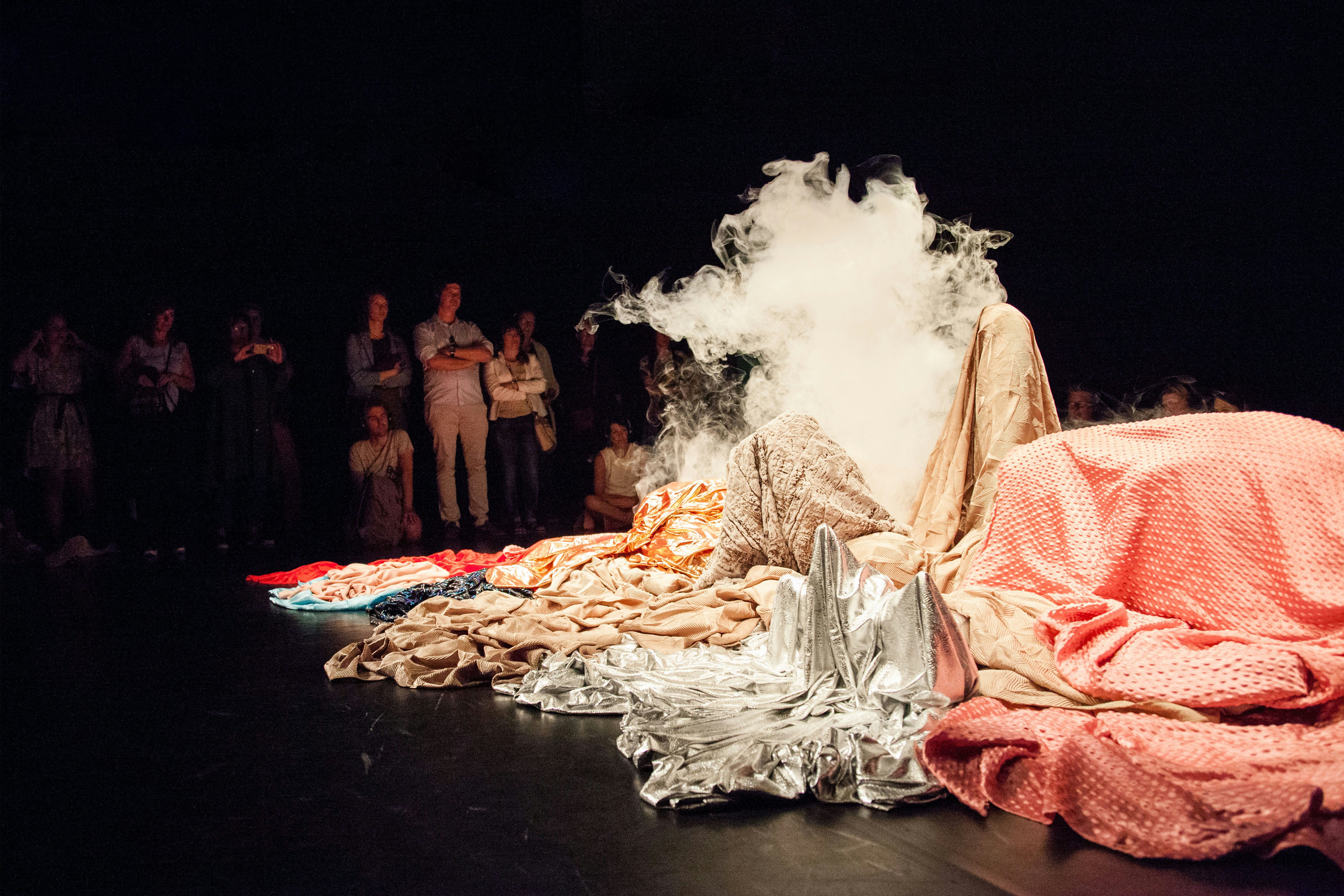Open Call for ideas and proposals that can strengthen diversity within our arts field

@ Leontien Allemeersch - TAZ - Blob - Maria Jerez Quintana
Diversity* enriches us and helps us grow. This is especially important in the arts. In true diversity, perspectives that deviate from the social norm are also heard and included equally. But that doesn’t happen by itself.
We see diversity as a precondition for sustainable cohesion, a driver of innovation, and necessary for broad social support for the arts. Which is why this latest call under “A Fair New Idea?!” is in search of ideas and proposals that can strengthen diversity within our arts field.
We wish to do this from the perspective of intersectionality**: with special attention to the different dimensions in which people experience discrimination, and how they influence each other.
Ideas
Specifically, we are looking for ideas that can offer the arts field in Flanders and Brussels a foothold for greater diversity:
- tools
- resources
- checklists
- forms of knowledge sharing
- knowledge networks
- small pilot projects
- …
dealing with topics such as:
- diverse artistic content
- well thought-out inclusive public outreach and/or personnel policy
- safe spaces
- insights, opinions or taste preferences that are not discussed enough
- …
In short, everything that you think contributes to diversity in the arts.
Most important condition: we do not support purely artistic projects. The aim is to strengthen the arts field in its pursuit of diversity.
Apply here for our Open Call 4
Jury
A Fair New Idea?! works with independent juries. For this fourth and final call, our jury
consists of Robbin Brettar, Mira Bryssinck, Hans Dewitte, Zahra Eljadid, Malique Fye, Melih Gençboyacı and Herlinde Raeman.
Apply
This call consists of two rounds:
1/ ROUND 1: deadline Friday 10 September at 00:00 CET
For round 1, you are required to submit a short pitch. This can be done in Dutch or English. No more than 2 A4 pages are needed. If you are unable to upload your idea via the web platform, then email us at afni@kunsten.be. You can submit your pitch in text or by e-mailing a short video or voice message to afni@kunsten.be.
If you opt for an email, video or voice message, make sure you answer all the questions (see below) that are asked in the text form.
The questions you will have to answer are:
- Briefly introduce yourself. Explain why you are eligible for support from A Fair New Idea?! – diversity. (Note: groups and collectives are also eligible, so “you” can be understood as singular as well as plural)
- What is diversity for you and which aspect(s) of it are you most concerned with?
- What is the idea, proposal or initiative you wish to propose?
- Upload an image appropriate to your idea, proposal or initiative (we will use this as a profile picture on the web platform where ideas are shared)
! Please note: once you start the submission procedure, you must complete it in one go. It is not technically possible to save your pitch halfway through and continue working on it later.
All ideas will be shared online on our web platform on the day of the deadline, anonymously if you wish. If there’s a reason why you don’t want your idea to appear online, let us know.
An independent jury will select seven short pitches, each of which will receive an amount of 400 euros to submit a detailed proposal.
2/ ROUND 2: deadline Friday 22 October at 00:00 CET
Seven selected candidates submit a detailed proposal. The jury has an envelope of 12,000 euros available to allocate to one winning proposal, or to divide among multiple (max 3) strong proposals.
Other languages
This Open Call is available in other languages: Dutch, French, Spanish or Arabic.
You can submit a short pitch in English or in Dutch.
More information or question?
Send an e-mail to afni@kunsten.be
Definitions
* For a definition of diversity, see our article on the topic.
** Intersectionality assumes that different forms of discrimination exist and that they interact with each other. Which is why you cannot tackle one form of exclusion separately, but must look at the totality of oppression mechanisms.
Sign up to our newsletter and stay updated on the latest developments, or check our Facebook page or website.


